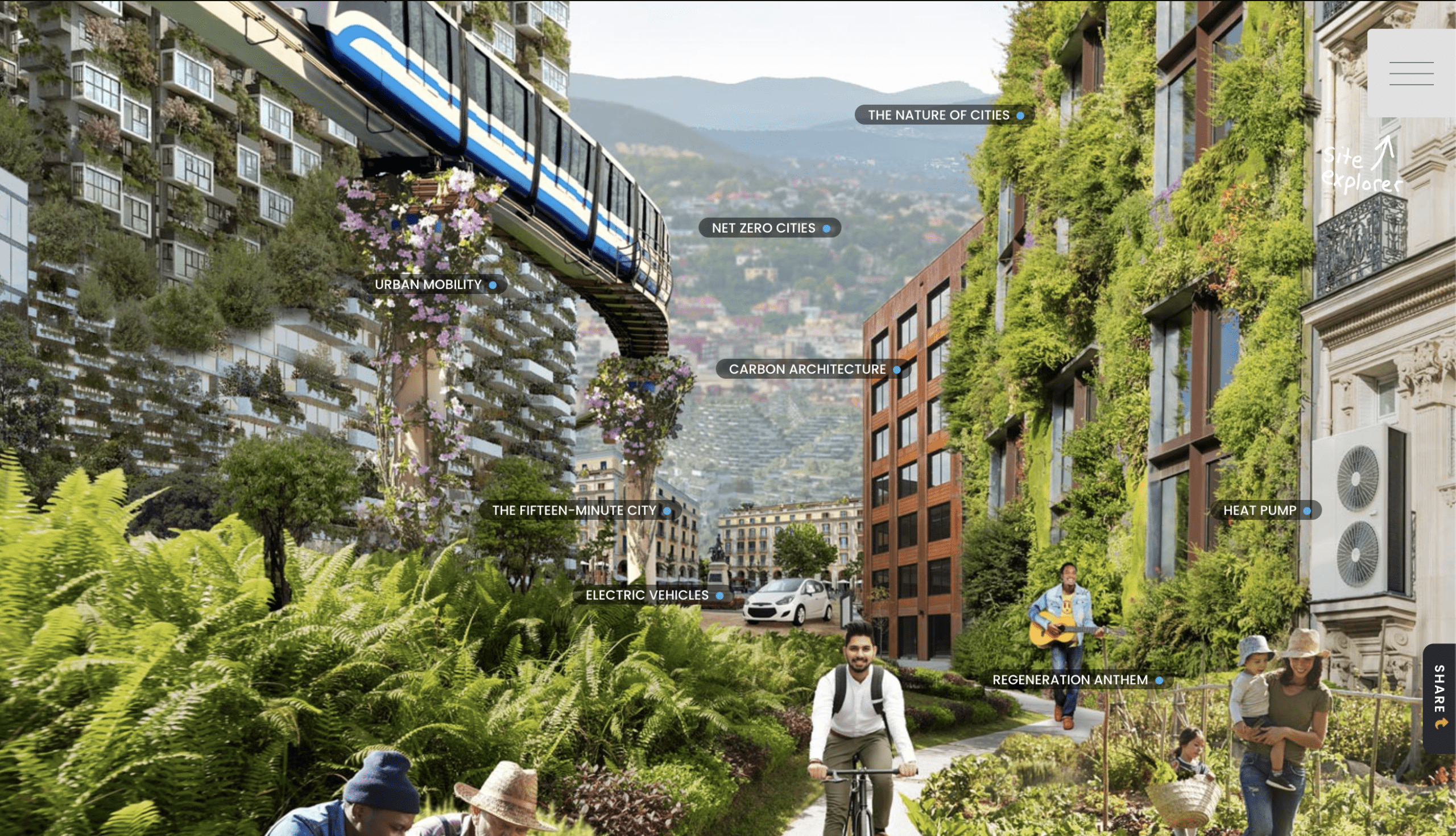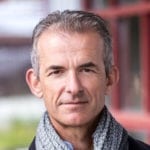What is Regeneration Nexus?
From the Organizers:
Project Regeneration was established in 2020 to research and promote solutions to the climate emergency. Its purpose is to help transform the ecological crisis within one generation by informing and inspiring the regenerative movement affecting change through education, leadership, research, mentorship, and grassroots activism. Our team of researchers and journalists is building a database of climate solutions and the specific actions linked to them, called Regeneration Nexus. These are actions that can be taken right away by individuals, groups, companies, universities, governments– all the levels where we organize ourselves and make change. It’s about taking action on the local level, honoring the place where you live, bringing back the natural landscape and ecosystem, removing the cement and supporting biodiversity returning.
Regeneration puts life at the center of every action and decision, encompassing grasslands, farms, insects, forests, fish, wetlands, coastlands, and oceans; it applies equally to family, communities, cities, schools, religion, commerce and governments. The heating planet is our commons. It holds us all. To address and reverse warming requires connection and reciprocity. It calls for moving out of our comfort zones to find a depth of courage we may have never known. It calls for action that is bold and fearless. We’re putting our energy into accelerating this action.
You can also check out this interview with Paul Hawken, discussing his book Regeneration: Ending the Climate Crisis in One Generation.
Through an EcoDharma Lens
There is a great deal of overlap between the work Regeneration is doing and many aspects of the Dharma, but one of the more unique features of their ecological solutions is that they support the entire living Earth community. In this way, there is an implicit awareness of what Thich Nhat Hahn called Interbeing. He wrote,
If we want to change the situation, we must begin by being our true selves. To be our true selves means we have to be the forest, be the river, and be the ozone layer. If we visualize ourselves as the forest, we will experience the hopes and fears of the trees. If we don’t do this, the forests will die and we will lose our chance for peace. When we understand that we inter-are with the trees, we will know that it is up to us to make an effort to keep the trees alive. In the last twenty years, our automobiles and factories have created acid rain that has destroyed so many trees. Because we inter-are with the trees, we know that if they do not live, we too will disappear very soon. 1https://www.parallax.org/mindfulnessbell/article/environmental-interbeing/
Regeneration’s approach acknowledges that the health of our climate inter-is with the health of every other inhabitant or ecosystem on our planet. This is not solely about reducing warming, but is about the health of the whole.
Our Earth, our green beautiful Earth is in danger, and all of us know it. We act as if our daily lives have nothing to do with the situation of the world, but if we can change our daily lives—the way we think, the way we speak, the way we act, we can change the world. – Thich Nhat Hanh 2 https://www.parallax.org/mindfulnessbell/article/environmental-interbeing/
Get Involved
Right now, Regeneration is working to make their Nexus database more searchable by interest, job, location, and more so users can narrow down the actions and see what applies to them. For the time being, however, the database is organized by topic.
Note that this database is a systems wide approach, so it begs for teamwork. It’s absolutely huge. As members of the living earth community, we do this together, not on our own. If after you peruse and pick one or two, it still feels too big, just focus on one small, local issue to sink your teeth into. What can you do right where you are? How can you make an impact in your community or your local watershed?
- Find a few topics on the database that you feel connected to, where there’s aliveness, interest, background, or connections. Then think about where you have or can develop agency, whether it’s where you work, a community or religious group, your own home, a company- where do you have the power to make change collectively? We are all members of different communities, and we encourage you to look for ways to agitate for change in all areas of your life. If you feel drawn to something, there are also ways you can develop agency in that area. For example:
- If you are passionate about reducing plastic use and work at a company, you might find solutions in the “Companies” section of the “Action Items” on the Plastics Industry entry.
- If you’re interested in reducing fossil fuel use in homes, learn about the benefits of fossil fuel-free heating systems and what you can do to shift toward them in your community in the Heat Pumps entry or in the Electrify Everything entry.
- If you’re an employer who wants to reduce fossil fuel use among those who commute to work, read the Micromobility entry and implement some of the solutions for Groups.
- Check our newsletter and action home page where we will be amplifying action opportunities from Regeneration’s Nexus database each month.
References
- 1https://www.parallax.org/mindfulnessbell/article/environmental-interbeing/
- 2https://www.parallax.org/mindfulnessbell/article/environmental-interbeing/







